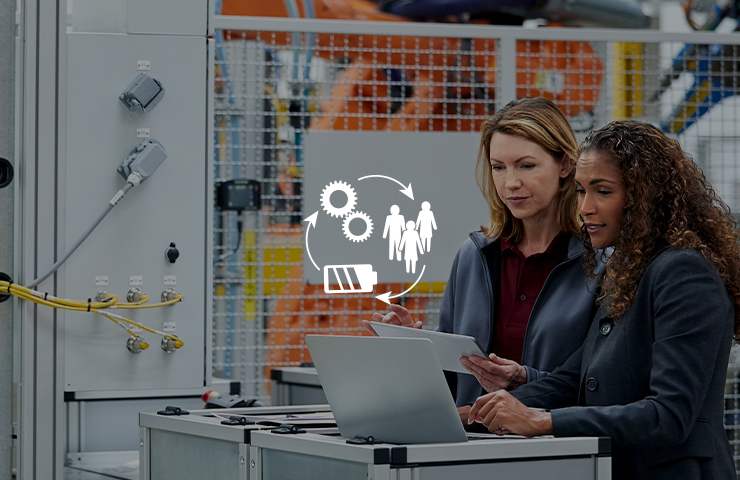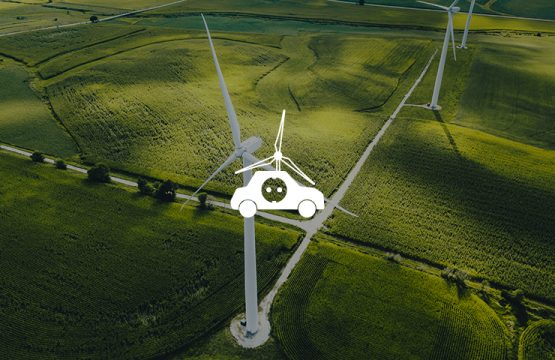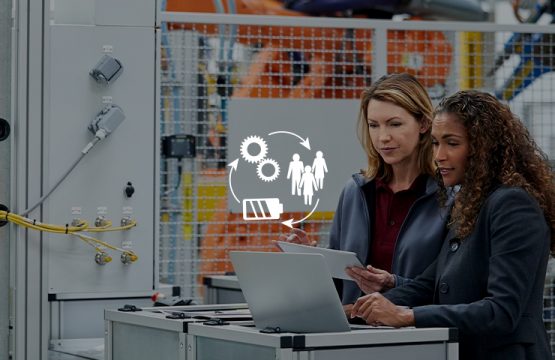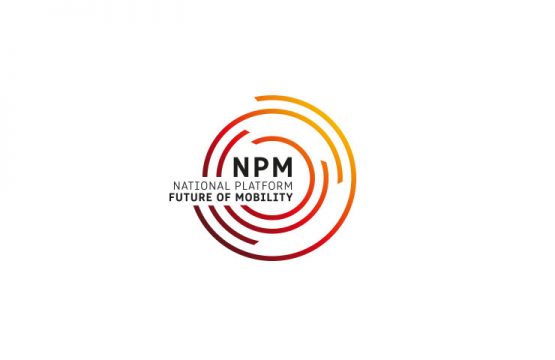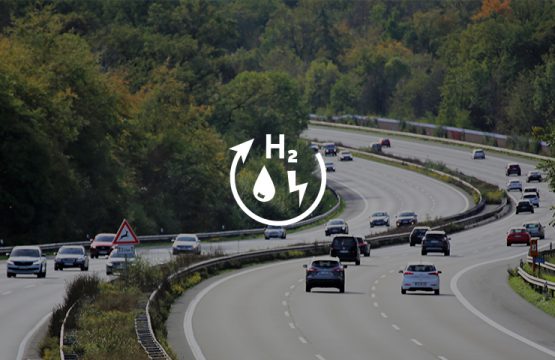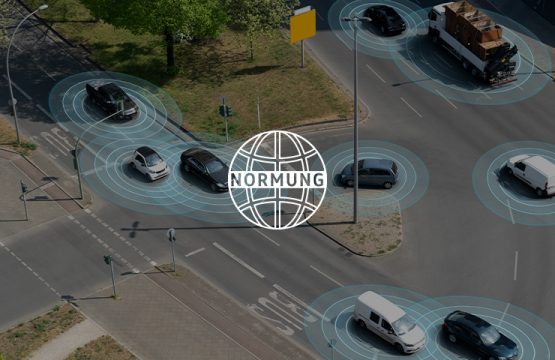As a result of the climate protection measures adopted by the German government, the speed of the electrification of the mobility sector is going to increase. In its recently published report, working group (WG) 4 of the NPM has been looking at what impact this acceleration will have on employment structures. The need for workers in production and – to a lesser degree – in development is set to fall. At the same time, new job profiles are emerging, and new qualifications needed. In order to preserve the level of employment in the mobility sector, employees need to be trained or upskilled with these new requirements in mind.
“We can already see a trend towards a change in the mobility sector, which will not only affect the number of jobs, but even more so the type of work. Announcements made by car manufacturers and suppliers in recent weeks show that the sector is undergoing massive changes. The launch of electromobility by 2030 due to both European and national climate change regimes as well as further efficiency improvements as a result of an increasingly automated production are having a larger and larger impact on employment structures. If we are to preserve the industrial added-value and jobs of the domestic automotive industry, we need the entire automotive value chain to be located here,” explains Jörg Hofmann, chairperson of the German Industrial Union of Metalworkers and head of NPM’s working group 4.
Quantitative analysis on the basis of recognized studies
In drawing up WG 4’s report, NPM complemented two well-known studies (ELAB 2.0 by Fraunhofer IAO and IAB Research Report 08/18) by two scenarios for the year 2030. In the new electromobility scenario based on ELAB 2.0, German car manufacturers are assumed to produce significantly more purely electric (30%) and plug-in hybrid vehicles (15%) in order to be compliant with the EU’s overall CO2 limits for vehicles. Scenario Electromobility Plus based on the IAB Research Report assumes a fleet of ten million electric vehicles by 2030. A combined analysis of these two calculations provides a broad-based illustration of the way in which jobs are expected to be affected in Germany.
In comparison with results to date, the new electromobility scenarios predict an even lesser need for workers which is partially due to productivity increases through a higher degree of automation. The production of electric vehicles can be automated more easily. If there is no improvement in the competitive position of the German industry in the area of electromobility in the next few years, and if the need for imports of battery cells and electric vehicles continues to grow in light of the launch of electromobility, employment structures will be severely hit. In future, car manufacturers will no longer be able to provide value creation and employment along supply chains in the same way. Businesses need to identify new potentials for adding value as soon as possible, start transforming their business models accordingly and join forces to train people in the relevant areas, such as automotive software.
Qualitative analysis with national regulations and regional variations in mind
The burden of training the workforce to keep up with structural changes cannot be carried by individual companies alone. That is why in the mobility sector, a central upskilling concept is required which takes into account the needs of small and medium-sized companies in particular. In order for the chosen qualification measures to match future qualification needs of the industry, it is crucial to have as precise an idea as possible vis-a-vis future workforce and qualification needs.
This is why WG 4 proposes the creation of (regional) networks, so-called competency hubs, where the Federal Employment Agency, regional further training institutions and businesses with qualification needs work together in order to develop and offer appropriate and needs-based qualification measures. These can be modelled on employment initiatives which have been developed and successfully deployed in the industry by car manufacturers and suppliers. The situation of employees in regions dominated by the automotive and supply industries needs to be addressed particularly carefully. This is already being done to some degree in regional transformation communities, which can work in close collaboration with the envisaged competency hubs or build on them. WG 4 further recommends complementing the existing policy instruments. In this way, the law on upskilling opportunities could be opened up to collective applications which means that in addition to individuals, an entire collection of workers could be supported. In addition to preserving jobs, short-time work arrangements could be adjusted to include upskilling.
The report by WG 4 is now available to download via the NPM website: www.plattform-zukunft-mobilitaet.de (in German).
About NPM – National Platform Future of Mobility
The National Platform Future of Mobility brings together experts in the fields of politics, the private sector, associations, research institutes and NGOs to develop visions for sustainable, environment- and climate-friendly, affordable and competitive mobility in Germany. Presided by Prof. Dr. Henning Kagermann, six working groups develop intermodal guidance to politicians, businesses and society in a technologically neutral way.
Contact:
Alexandra Huß
Special Advisor on Communications
Office of the Chairman, National Platform Future of Mobility
huss@acatech.de
+49 (0)30 / 206 30 96 86
+49 (0)160 / 714 93 25
